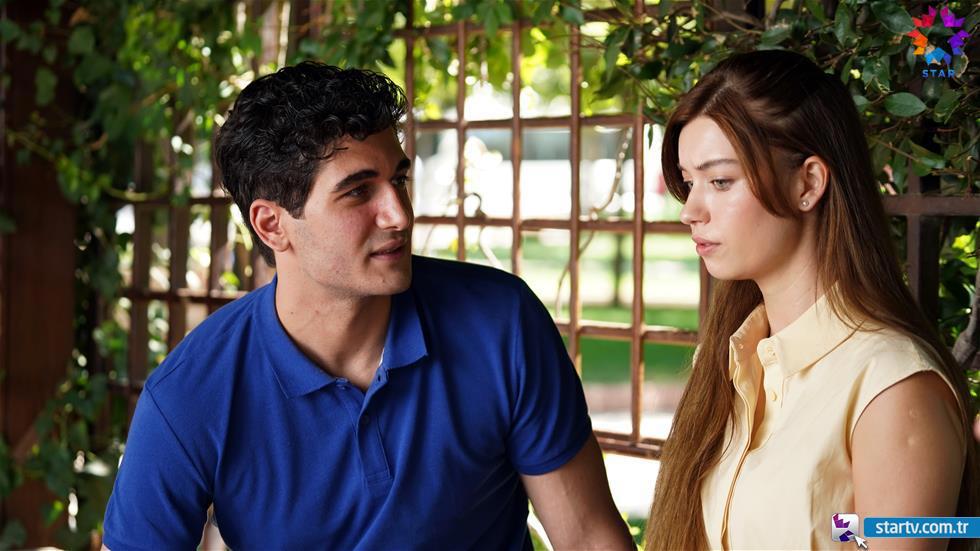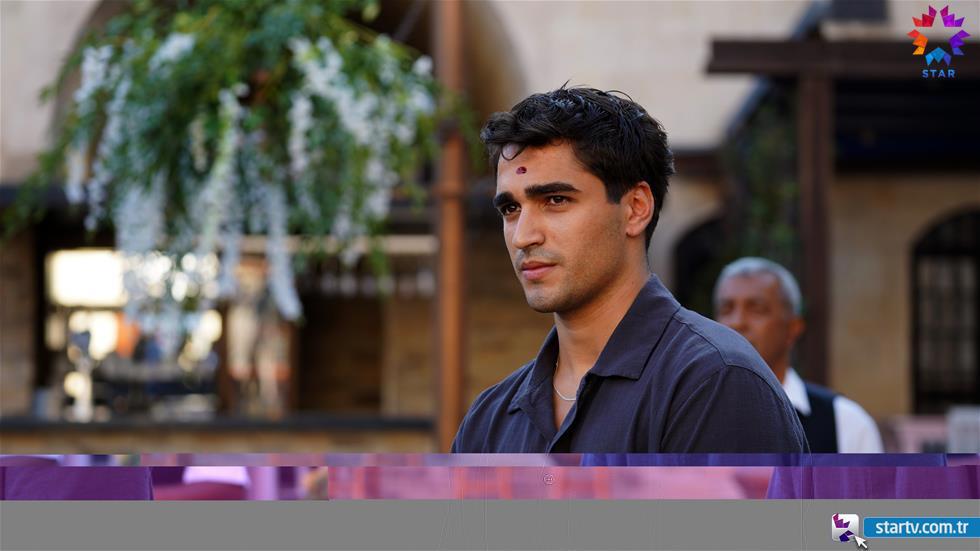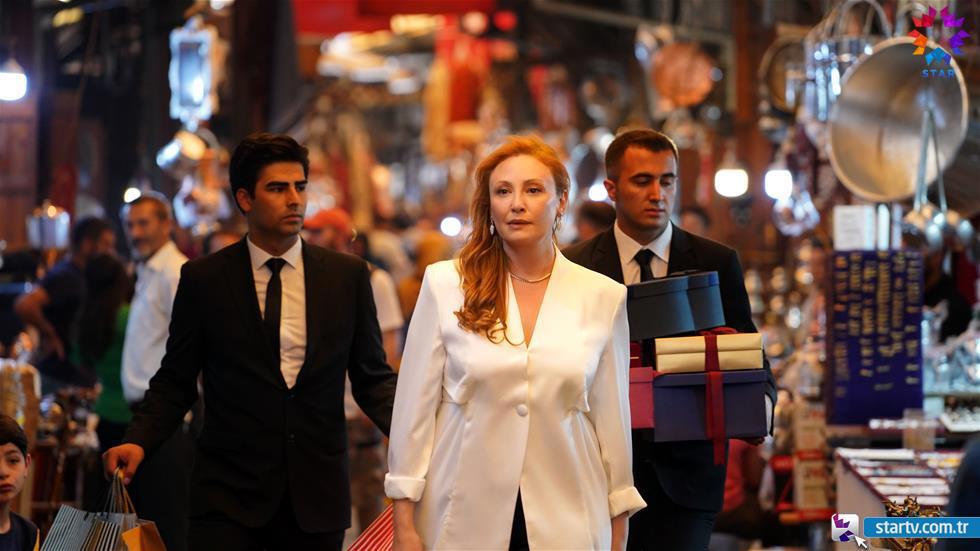Summary of Yali Capkini Episode 02
Yali Capkini Episode 02 covers colorful exchanges and events related to the arrangements and feelings girding Seyran and potentially other characters’ marriages.
- Unconcerned and tense exchanges bidding good evening and conversations about marriage charges.
- Frustration, confusion, and torture expressed about marriage situations and family comprehension.
- Disinclination and resistance from Seyran about going through with an arranged marriage.
- Seyran’s offer to escape marriage by fleeing with Yusuf.
- Hints about a surprise and event for Ferit and Gelin involving family dynamics.
- Defiance on traditional marriage prospects and pressures about domestic pressure.
- Medications and anxious queries regarding unborn marriage plans.
- Dissensions on the emotional significance of connections and marriages.

In-Depth Analysis
Marriage is a central theme connecting the colorful textual exchanges and situations. For some characters like Seyran, brewing arranged marriages goad torture, pressures with family members, and proffers of drastic conduct like fleeing to escape.
For others, marriages come joyful if anxious occasions bring the family together. Underpinning numerous of the issues are conflicts between traditional prospects and individual solicitations for independence and choice.
Seyran’s Disinclination and Torture Over Impending Marriage
The most emotional torture comes from Seyran as she faces the prospect of an arranged marriage she doesn’t want. Her disinclination and despair come across in statements like
” expresses her intentions to leave after the marriage formalities”
” proposes fleeing as the result of her situation, planning to escape with Yusuf”
She sees marriage as a trap and restriction on her independence. Running down with Yusuf seems the only way to take control of her life’s path. This conflict between domestic duty and particular freedom underpins numerous societal debates over arranged marriages.

Tradition Versus Independence
Related to Seyran’s struggles, pressures flare at points between traditional prospects around marriage and adding solicitations for particular independence and defiance of conventions.
We see signs of this broader pressure in Yali Capkini episode 02 like
” Defiance against prospects of traditional marriage.”
” misconstructions and dispatches gaps between family members.”
” Disagreement about the significance of marriage and the emotional investment in connections.”
Characters clash over their fancies for connections, family dynamics, and leading their lives. Some feel to push for further ultramodern independent approaches while others hold to further customary places and arranged processes.
This gap appears to drive numerous of the misconstructions and conflicts suggested in the textbook.

Anxieties Over Marriage and Family Acceptance
Another recurring theme is anxiety. Indeed when marriage and marriages are eating, the characters grapple with unease about this major life transition.
” Anxious moments and misgivings regarding unborn plans”
” Medications and emotional sentiments girding a significant event”
similar anxiety may connect to wanting domestic acceptance, conforming to new dynamics, and embracing lifelong cooperation- all dispiriting prospects.
Hints of festivity and Connection
still, the textbook includes hints of connections forming and joyous fests as well as statements similar as
” Excitement and medications for a marriage with family involvement and emotional exchanges.”
This suggests that while pressures and anxieties live, we may also see marriage scenes bringing cousins together in meaningful ways, prostrating earlier divisions.
My Perspective
Family acts as a vital element in the colorfully depicted outlooks on and responses to pending connubial unions. Bonds fray and feelings flare over differing values. Yet marriages can also unite favored bones in festivity.
important remains uncertain about which voices will prevail regarding conservatism versus fustiness and independence. still, I believe common ground can sluggishly be set up. As times change, each generation struggles to walk the line between new borders and comforting customs.
Progress happens most steadily through nuance and understanding- if the families strive for this despite their conflicts. And if women like Seyran admit empathy while also showing tolerance. With compassion on all sides, they can bridge divides across generations and traditions to write a new inclusive future that balances independence and interdependence.
What could happen in Yali Capkini Episode 03?
As to what happens to come in occurrences If Seyran does flee, I anticipate original drama but her eventual equivocal return- realizing insulation gets lonely while family has continuing value she underappreciated.

However, further pressures with elders will unfold unless she asserts her voice- claiming some agency in shaping the path ahead, investing choice into tradition, If she stays. This would align with balanced composites of ultramodern and customary relationship fabrics that serve all.
Either way, the clashes will continue but in dwindling axes. And fests can unite them at times- marriages included- as deeper ties prove their adaptability and people show understanding.
Conclusion
In the end, these rich textbooks and hints revolve around particular responses to pending marriages in a background of family and societal pressures over tradition versus independence.
Anxieties, misgivings, misconstructions, and contrasts in emotional investment point prominently in the exchanges and events. But so do expedients, excitement, support, and adaptability.
My fascination sees axes on all sides ultimately fading over time in favor of balanced composites- captures what fulfills across generations in connections and fests while upholding identity. But the path toward adaptable equilibrium stays complex, layered, and at times painful or messy amidst the joy.
FAQs on Yali Capkini Episode 02
What are some of the main themes related to marriage that come across in the text?
Some key themes related to marriage that emerge include conflicts between tradition and independence, anxieties over major life transitions, and the emotional significance of marital connections.
How does Seyran feel about her impending arranged marriage?
Seyran feels tortured and desperate to avoid her impending arranged marriage, expressing disinclination and a willingness to dramatically flee with Yusuf to escape marriage.
What conflicting values does the text suggest are creating tensions within families?
There appear to be clashes over differing generational views on independence versus tradition, especially regarding marital customs and family dynamics.
What positive signs around marriage are hinted at in the text?
There are hints of excitement, celebration, and emotional connections forming through marriages that unite loved ones.
Why might Seyran be considering fleeing her marriage?
Seyran sees marriage as restricting her independence and autonomy over her life path, causing her to feel trapped. Fleeing represents seizing control.
What prediction is made if Seyran does decide to flee her marriage?
It’s predicted there would be initial drama but an eventual equivocal return as she realizes independence can be lonely and that family has value she previously underestimated.
What key conflicts seem to underlie many of the tensions suggested in the text?
Conflicts between desires for independence and traditional customs create clashes over marital relationships and family dynamics.
What role does anxiety seem to play around marriage plans?
Anxiety over major lifelong transitions and gaining family acceptance seems to factor prominently regarding plans and events around marriages.
What balanced outcome does the author seem to see as ideal?
The author envisions balances between independence and interdependence, modernity and tradition – captures what fulfills across generations.
How might generational conflicts fade over time according to the author?
Through nuance, understanding, empathy, and tolerance on all sides to bridge divides and adapt traditions to evolving needs.




